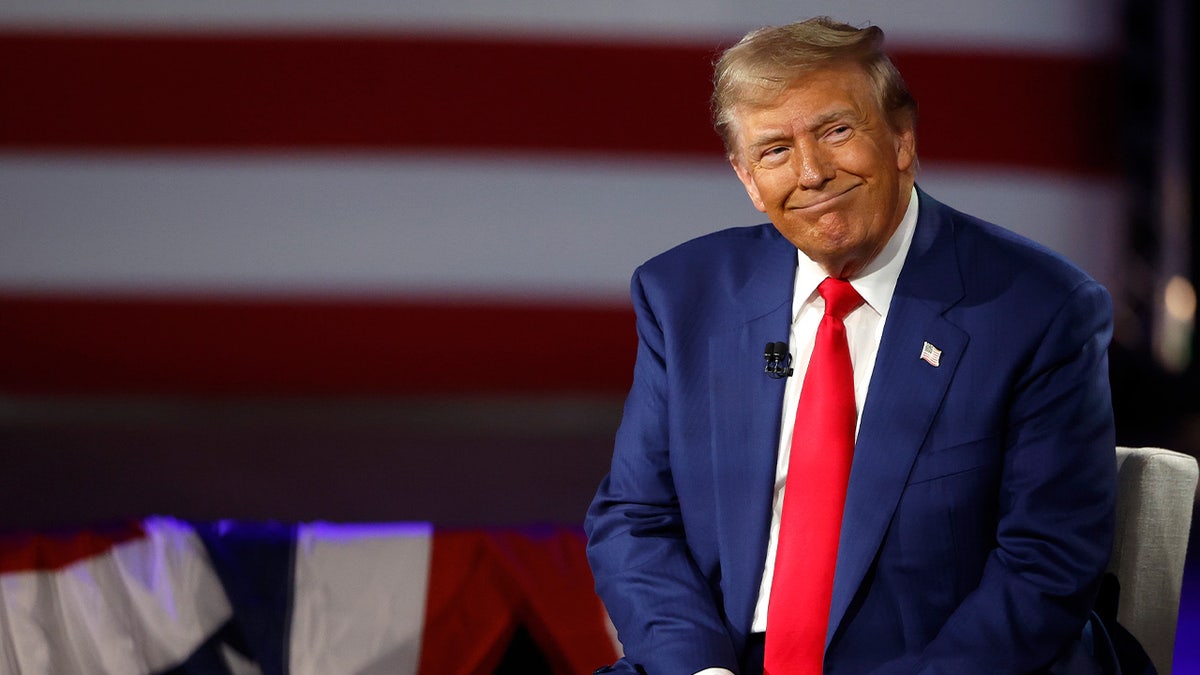Nebraska GOP senator opposes Electoral College change that may have helped Trump win re-election

The Republican Party’s efforts to lock down all of Nebraska’s electoral votes for former President Trump could be jeopardized after a state lawmaker refused to throw his support behind an initiative to change how the state allocates its electoral votes.
Nebraska state Sen. Mike McDonnell, a former Democrat from Omaha who switched his party to Republican this year, issued a statement Monday about his opposition to awarding that state’s five electoral votes as a winner-take-all, like 48 other states currently do.
Maine and Nebraska are the only two states that give two electoral votes to the candidate who wins statewide and one to the winner in each congressional district.
“Elections should be an opportunity for all voters to be heard, no matter who they are, where they live, or what party they support,” McDonnell’s statement read. “For decades, Nebraska has tried to live up to that ideal by allocating our electoral college votes in a way that gives all Nebraskans an equal voice in choosing our President. For Omaha, the city I love and have called home for 58 years, it brings tremendous national attention, is impactful on our local economy and forces Presidential candidates to make their case to all Nebraskans, instead of just flying over and disregarding us.”
HOW A LONE NEBRASKA DISTRICT COULD DECIDE THE PRESIDENTIAL ELECTION
The senator continued, saying over the past weeks, there had been conversations about whether to change how the electoral college could be allocated.
While McDonnell said he respects the desire some of his colleagues have on the issue, he has taken time to listen to his constituents and national leaders on both sides of the issue.
“After deep consideration, it is clear to me that right now, 43 days from Election Day, is not the moment to make this change,” he wrote. “I have notified Governor Pillen that I will not change my long-held position and will oppose any attempted changes to our electoral college system before the 2024 election.”
TEXAS GOV. GREG ABBOTT’S DEBATE ADVICE FOR TRUMP: ‘LET HARRIS SPEAK’
McDonnell also said he encouraged the governor, and will encourage his colleagues, to pass an amendment next year that gives the people of Nebraska the chance to decide on how the electoral college votes are allocated on the ballot.
“This November, Nebraskans will have the chance to elect candidates at every level who reflect their views, including on this issue,” McDonnell wrote. “That’s how it should be. Nebraska voters, not politicians of either party, should have the final say on how we pick a president.”
The senator’s decision means Republicans do not have the two-thirds majority they would need in Nebraska to pull off a change before the Nov. 5 election.
TRUMP AND HARRIS ON COLLISION COURSE AS 2024 CAMPAIGN ENTERS FINAL STRETCH

Nebraska is one of nine states that Republican candidates have carried in every presidential election since 1964. It also has not had a winner-take-all rule in place since 1991, and most times since then, Republican candidates have captured all of the state’s votes.
But in 2020, President Biden captured the vote for the Second Congressional District in Omaha. Former President Obama did the same thing in 2008.
In order to lock down the presidency, a candidate needs to win 270 of the 538 electoral votes.
In one scenario, Democratic Presidential Candidate Vice President Kamala Harris would win the battlegrounds of Wisconsin, Michigan and Pennsylvania, while Trump wins the other four battleground states of North Carolina, Georgia, Arizona and Nevada. In that case, Harris would collect 269 electoral votes to Trump’s 268 — which includes four from Nebraska.
The Associated Press reported that in that scenario, a Trump victory in Nebraska’s 2nd Congressional District would create a tie of 269-269, throwing the final decision to the U.S. House of Representatives. At that point, each state would have one vote, a situation that would likely favor Trump. But, if Harris carried the district, she would be president.
The Associated Press contributed to this report.
Read the full article here







